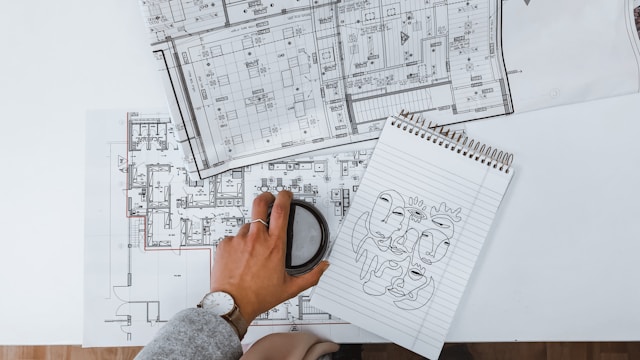Guide to Design-Build Construction in DFW
Design-build construction in DFW consolidates design and construction under one contract, offering you 33% faster project delivery with fewer change orders. You’ll benefit from streamlined communication, reduced delays through early collaboration, and improved cost control. This approach works exceptionally well for healthcare, retail, and industrial projects with technical complexity or tight timelines. Consider your timeline constraints, budget certainty needs, and team chemistry when evaluating this option. The following details will transform your project planning approach.

What design-build means and how it differs from traditional models
What exactly sets design-build construction apart in today’s competitive marketplace? Unlike traditional design-bid-build approaches, design-build unifies the entire project under a single entity responsible for both design and construction phases. This integrated method streamlines communication, reduces conflicts, and accelerates project timelines.
In the DFW market, design-build construction has gained significant traction because it establishes a single point of accountability. You’ll work with one team throughout your project, eliminating the finger-pointing that often occurs between separate architects and contractors. This approach typically delivers projects 33% faster with fewer change orders and cost overruns. Companies like Merit Contractors have successfully implemented this model in DFW since 1988, demonstrating its effectiveness for commercial construction projects requiring efficient execution and budget control.
Benefits: smoother communication, less delay, and cost control
While examining the benefits of design-build construction, three advantages consistently emerge as game-changers for DFW commercial projects. First, you’ll experience streamlined communication with a single point of responsibility coordinating both design and construction teams. This integration eliminates the finger-pointing that often occurs in traditional delivery methods.
Second, you’ll benefit from markedly reduced delays. When designers and builders collaborate from project inception, they can identify potential conflicts early, fast-track certain elements, and maintain momentum throughout the construction process.
Finally, design-build delivers superior cost control. With early contractor involvement, you’ll receive accurate pricing during the design phase rather than after completion. Merit Contractors has leveraged this integrated approach since 1988, helping clients achieve predictable budgets while maintaining quality standards throughout the DFW metroplex.
Projects that fit the model: healthcare, retail, industrial
Certain project types consistently demonstrate exceptional success with the design-build delivery method across the DFW metroplex. Healthcare facilities benefit from this approach as specialized medical requirements can be addressed simultaneously by architects and builders. Your clinics, surgical centers, and medical office buildings gain efficiency through this integrated process.
Retail developments thrive with design-build when you’re facing tight market-entry timelines. Whether you’re developing shopping centers or standalone stores, the streamlined workflow accelerates your path to opening.
Industrial projects—manufacturing facilities, warehouses, and distribution centers—represent ideal candidates due to their technical complexity. When you need specialized equipment integration and operational efficiency, design-build allows contractors like Merit Contractors, Inc. to incorporate these requirements from conception through completion, minimizing costly adjustments during construction.
Considerations for choosing design-build contracts
Beyond selecting the right project type, evaluating several key factors will determine if design-build represents the excellent delivery method for your DFW construction project. Merit Contractors, with over three decades of experience, recommends you consider these essential elements:
- Timeline constraints – Design-build typically accelerates project completion by 20-30% compared to traditional methods, making it perfect when you’re facing tight deadlines or need early occupancy.
- Budget certainty – If your project requires precise financial planning, design-build offers earlier cost certainty and typically reduces change orders throughout construction.
- Collaboration preferences – Your organization’s decision-making structure must support streamlined approvals and regular engagement with a single point of responsibility rather than managing separate design and construction entities.
You’ll need to weigh these considerations against your specific project requirements before committing to this integrated approach.
Common pitfalls to watch for
Despite the many advantages of design-build delivery, several common pitfalls can derail your project if you’re not vigilant. Inadequate owner involvement can lead to misaligned expectations and costly changes later. Many clients underestimate the importance of clear initial project requirements, resulting in scope creep and budget overruns.
Be wary of contracts lacking well-defined dispute resolution processes or with ambiguous risk allocation. This is particularly critical in DFW’s fast-paced construction environment. Additionally, rushing the pre-construction phase often creates downstream problems with permitting and construction coordination.
Since 1988, experienced contractors like Merit Contractors have navigated these challenges successfully. Remember that lowest bid selection often sacrifices quality and can increase total project costs. Finally, don’t overlook the importance of team chemistry—poor communication between designers and builders undermines the primary benefit of the design-build approach.
Questions clients should ask early in planning
How you prepare for your design-build project can dramatically impact its success. Before engaging a contractor like Merit Contractors, Inc., who has served the DFW area since 1988, you’ll need to clarify key elements that define your project’s parameters.
As you begin planning, prioritize these critical questions:
- What’s your thorough/detailed/exhaustive budget, including contingencies for unforeseen conditions and potential change orders?
- What specific timeline constraints must the contractor accommodate, and how will they mitigate potential delays related to permitting, materials, or labor shortages?
- How will the design-build firm handle communication protocols, reporting structures, and decision-making processes throughout the project lifecycle?
Addressing these questions early establishes clear expectations and creates a foundation for successful project delivery, minimizing costly misunderstandings later in the construction process.
For a broader overview of project delivery methods, you might also explore this resource on what construction means and how it’s managed.
